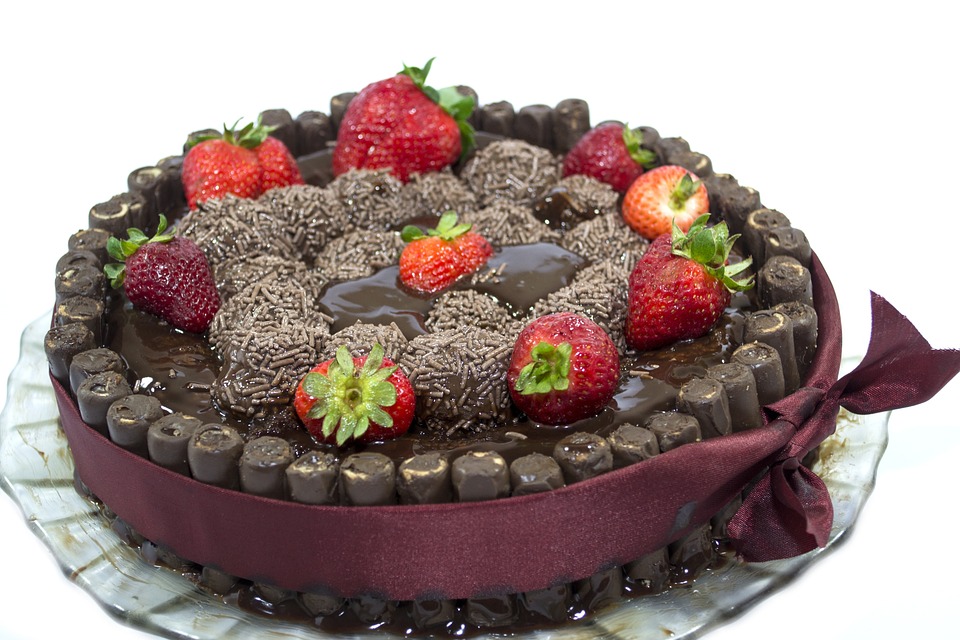When it comes to indulging in a delicious slice of cake, freshness is key. We all want to savor the moist texture, delectable flavors, and delightful aromas that make a cake truly special. However, once the celebration is over or we find ourselves with leftover cake, the question arises: does cake stay fresh and healthy in the fridge? In this comprehensive guide, we will delve into the intricacies of cake storage, exploring the impact of refrigeration on its freshness and offering valuable insights to help you make the most of your sweet treats.
Understanding the Role of Refrigeration
Refrigeration is a common method used to extend the shelf life of various food items, but its impact on cakes can vary depending on several factors. Cakes are delicate creations that contain a balance of ingredients, including flour, sugar, eggs, and fats. These components work together to create a moist and fluffy texture that we all adore.
The Effect of Refrigeration on Cake Texture
Refrigeration can affect the texture of cakes in different ways. Moisture plays a crucial role in maintaining a cake’s freshness, and refrigeration can potentially dry out the cake if not done properly. When exposed to cold temperatures, cakes tend to lose moisture, resulting in a drier and less appetizing texture.
However, certain types of cakes, such as cheesecakes or mousse cakes, benefit from refrigeration. These cakes often have delicate fillings or toppings that require lower temperatures to maintain their shape and prevent spoilage. Thus, refrigeration can be advantageous for these specific cake varieties.
Best Practices for Refrigerating Cake
To ensure that your cake remains fresh and delicious when stored in the fridge, it is essential to follow some best practices:
1. Properly Wrap the Cake
Before refrigerating, it’s crucial to protect your cake from the cold and potential moisture. Start by allowing the cake to cool completely at room temperature. Once cooled, tightly wrap it in plastic wrap or place it in an airtight container. This step will help preserve the cake’s moisture and prevent it from absorbing any unwanted odors from the fridge.
2. Use a Cake Dome or Container
Investing in a cake dome or container with a tight seal can significantly contribute to preserving the cake’s freshness. These specialized containers provide an extra layer of protection against moisture loss and exposure to other fridge odors. By maintaining a controlled environment around the cake, you can minimize the risk of it drying out or becoming stale.
3. Avoid Refrigerating Decorative Cakes
If you have a beautifully decorated cake with intricate frosting or delicate sugar decorations, it is advisable to avoid refrigeration. The moisture in the fridge can cause the decorations to become soft and lose their shape. Instead, find a cool, dry spot in your kitchen or pantry to store these types of cakes.
Alternatives to Refrigeration
While refrigeration can be a viable option for some cakes, there are alternative methods to keep your cake fresh, depending on the specific circumstances:
1. Room Temperature Storage
Certain cakes, such as butter cakes, pound cakes, or sponge cakes, maintain their freshness best when stored at room temperature. These cakes typically have a higher fat content, which helps them retain moisture and prevent staleness. If you plan to consume the cakes within a day or two, storing it in an airtight container on your kitchen counter should suffice.
2. Freezing for Extended Storage
If you have a surplus of cakes or want to store it for an extended period, freezing can be a fantastic option. Freezing helps retain the cake’s moisture and flavor, allowing you to enjoy it at a later time. To freeze a cakes, ensure it is properly wrapped in plastic wrap and then placed in a freezer-safe container. This double layer of protection will prevent freezer burn and maintain the cake’s quality. When you’re ready to enjoy the frozen cakes, allow it to thaw in the refrigerator overnight, ensuring a gradual return to its original texture and flavor.
Tips for Extending Cake Freshness
In addition to proper storage techniques, there are a few tips you can follow to extend the freshness of your cake:
1. Slice as Needed
To minimize exposure to air and moisture, it’s best to slice the cakes only when you’re ready to serve or consume it. Cutting the entire cake at once can accelerate the drying process and reduce its overall freshness.
When not refrigerated, how long does cake last?
we understand the importance of indulging in delectable desserts, and what better treat than a freshly baked cake? Whether it’s a moist chocolate cake, a fluffy vanilla sponge, or a rich red velvet delight, cakes are a delightful centerpiece for any occasion. However, it’s not uncommon to find yourself wondering how long a cake will last when it’s not refrigerated. In this comprehensive guide, we will dive into the factors that influence the shelf life of cakes, storage recommendations, and tips to ensure your cakes stays fresh for as long as possible.
Understanding Cakes Shelf Life
The shelf life of a cake largely depends on its ingredients, moisture content, and the environmental conditions in which it is stored. Cakes that are properly baked, frosted, and handled with care tend to have a longer shelf life. However, the absence of refrigeration can significantly impact how long a cakes remains fresh and safe to consume.
Factors Affecting Cake Freshness
- Ingredients: The choice of ingredients used in the cakes plays a vital role in determining its shelf life. Cakes made with perishable ingredients such as cream, custard, or fresh fruits tend to have a shorter shelf life compared to cakes made solely with dry ingredients.
- Moisture Content: The moisture content of a cakes affects its texture, taste, and longevity. Cakes with higher moisture content, such as those containing fruits or fillings, are more susceptible to spoilage when not refrigerated.
- Storage Conditions: Proper storage is crucial to maintaining the freshness of a cakes. When cakes are left at room temperature, they are exposed to heat, humidity, and air, which can accelerate spoilage. Additionally, exposure to direct sunlight should be avoided as it can cause the cakes to dry out and lose its flavor.












